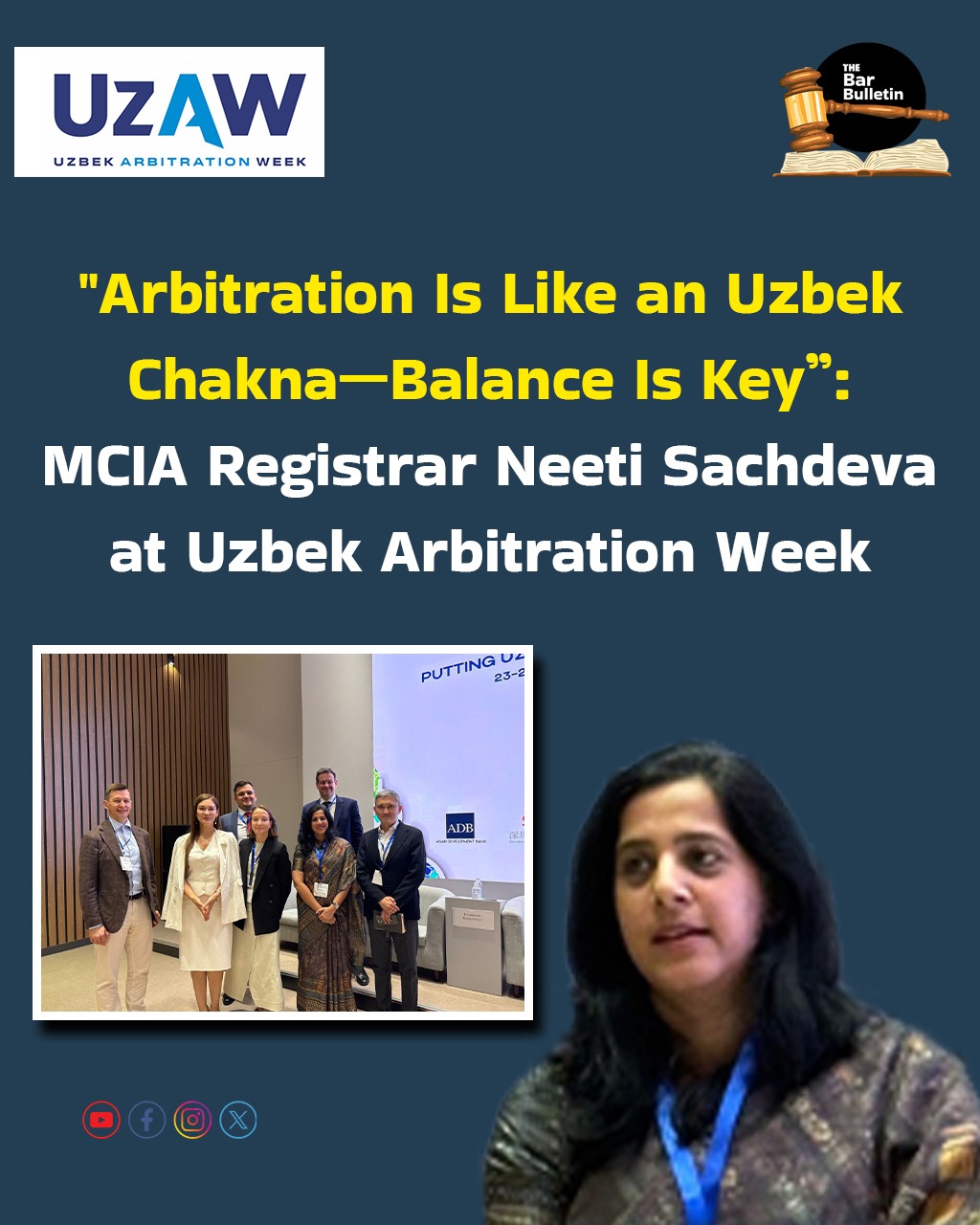Speaking at the prestigious Uzbek Arbitration Week, Ms. Neeti Sachdeva, Registrar & Secretary-General of the Mumbai Centre for International Arbitration (MCIA), delivered an engaging address titled “Do’s and Don’ts: The India Edition.” Drawing a vivid parallel between the art of arbitration and the delicate balance of an Uzbek chaikhana”, the tea must be strong but not bitter, the samosa fresh but not burnt”, Ms Sachdeva captivated the audience with practical insights on navigating India-related arbitration.
Acknowledging that she was “the last person between you and food,” Ms Sachdeva kept her remarks crisp, outlining ten key Do’s and Don’ts for counsel involved in India-linked arbitrations:
Ten Key Takeaways from Neeti Sachdeva’s Speech
1. Trust the Process – Indian courts now strongly support arbitration and uphold party autonomy.
Don’t assume delays are inevitable.
2. Embrace Diversity – Nearly 40% of MCIA appointments are women.
Don’t underestimate the local touch—engage Indian counsel to navigate unique requirements like stamping contracts.
3. Rely on Courts for Support – Courts act as referees, not players, granting interim relief and enforcing foreign awards.
Don’t fear Indian courts; the old stereotype of overreach is fading.
4. Engage with Arbitral Institutions – Institutions like MCIA and TIAC offer world-class case management.
Don’t assume ad-hoc arbitration is the only way.
5. Know Bar Council Rules – Foreign lawyers may advise and participate in international arbitration.
Don’t treat India as a “free-for-all”; arguing in Indian courts remains restricted.
6. Respect Timelines and Time Zones – Efficiency is credibility.
Don’t expect arbitrators to accommodate impractical hearing hours.
7. Plan for Enforcement Early – India is a New York Convention country and pro-enforcement.
Don’t overlook the nuances of public policy when drafting and strategizing.
8. Prepare for Hybrid Hearings – Indian arbitrations often involve cross-border participation.
Don’t assume a one-size-fits-all approach across Indian cities or with foreign entities.
9. Build Credibility with Tribunals – Clear, honest advocacy earns trust.
Don’t rely on courtroom theatrics or gamesmanship.
10. See India as a Hub, Not a Hurdle – Engage with the arbitration community and events like Arbitration Week.
Don’t ignore India in an international arbitration strategy—“it’s like running a restaurant but forgetting to serve pulao.”
Sachdeva’s address highlighted India’s transformation into an arbitration-friendly jurisdiction, stressing that with the right balance of preparation, respect for local nuances, and institutional engagement, parties can achieve efficient and enforceable outcomes.

